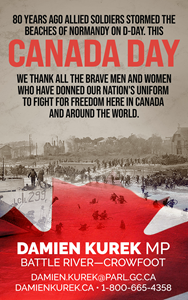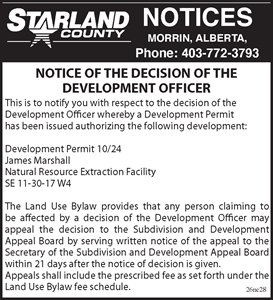The East Coulee School Museum received a gift from the Drumheller Family Fund to warm their heart and warm their building.
The East Coulee School Museum has been without heat since January when its ancient coal-fire heating system gave up. Over the last year they have been focusing their fundraising on replacing the heating system. On Thursday the Drumheller Family Fund presented the Museum with $9,930.
Manager for the East Coulee School Museum Owen Thompson said this was by far the biggest step they have taken in raising the funds needed to heat the building.
“It is like Christmas came early,” said a grateful Thompson.
He explains the museum will need about $50,000 for the replacement and over the last half-year they have instigated a concert series to help raise the funds. Other events including a family dance, and the quaint Christmas in the Coulee, all dedicated funds to the capital project.
Brent Noland, president of the Dinosaur Valley Heritage society says they are grateful for the donation, and he hopes the funds they received this week will provide a spark to get the fundraising effort rolling. They are looking into some grant programs in the new year.
Thompson said the will continue the concert series into 2013. The Drumheller family Fund was established in 1994. The Drumheller Family donated an endowment to the Royal Tyrrell Museum Cooperating Society to be focused on youth .The Co-operating Society invested the endowment with the Calgary Foundation and each year they invest the net revenue of the interest on to a community initiative.

(l-r) Bridget Unland, vice chair of the Royal Cooperating Society and the Chair of the Drumheller Fund, presents East Coulee School Museum manager Owen Thompson and Dinosaur Valley Heritage Society president Brent Noland with a donation of $9,930 from the Drumheller family fund to help the Museum purchase a new heating system.

 The Town of Drumheller this month began periodic trapping of cats in the downtown core in response to complaints.
The Town of Drumheller this month began periodic trapping of cats in the downtown core in response to complaints. Your Christmas tree may be the gift that keeps on giving this season.
Your Christmas tree may be the gift that keeps on giving this season.























